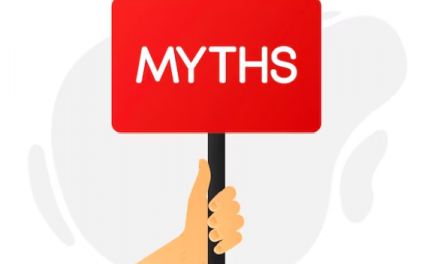I was asked recently whether hypothyroidism is considered to be a health complication of obesity. It’s a great question, and one that puzzles a lot of health care providers.
The first point to make here is that the reverse is certainly true – undiagnosed hypothyroidism can cause weight gain (as blogged previously). Interestingly, routine screening for thyroid function is not recommended by Obesity Canada Guidelines, unless clinically warranted. However, when you consider the symptoms of hypothyroidism (which can include fatigue, constipation, weight gain, feeling cold, dry skin, dry hair), it is often clinically warranted to check.
As for whether obesity can cause hypothyroidism, the overall balance of the existing data suggests that TSH may be positively correlated with body mass index (BMI) (though there is some controversy in the literature about this – interested readers can dig into this here and here and here), without causing overt hypothyroidism. (For an explanation on thyroid hormone tests and what they mean, see my prior blog here.)
How obesity may drive up TSH is not well understood, though genome-wide association studies suggest that TSH can be significantly elevated by an increase in genetically-driven BMI. There are a number of complicated patho/physiologic theories, including decreased tissue responsiveness to thyroid hormones, higher levels of leptin (which increases TSH production), and inflammatory cytokines impacting thyroid hormone production. Weight loss, and even improvement in body composition without weight loss, can induce a significant decrease in TSH levels.
If a TSH is found to be mildly elevated, repeating the test, and checking the actual thyroid hormone level (free T4, and sometimes free T3) is usually the next step. Checking thyroid antibodies (thyroid peroxidase antibody in particular) is useful as a marker of risk of autoimmune hypothyroidism. It’s important to note that TSH can often be temporarily mildly elevated and return to normal spontaneously, for many reasons including viral infections. Thus, if TSH is mildly elevated, the best course of action is typically to repeat it in a month (often with additional labs as above) to see if the TSH has normalized on its own. (Note that the approach may be different in specific clinical scenarios such as pregnancy.)
Clinically, it can be tough to sort out whether a persistently elevated TSH (with normal thyroid hormone levels) in a person with elevated weight is a physiologic reflection of elevated weight requiring no treatment, or whether it is reflecting a mildly underactive thyroid gland, slowing metabolism and contributing to weight gain. Layer onto that the fact that normal ranges for TSH are different and/or changing in different labs/cities/provinces, making it even more complicated for the doctor to sort out. Where the actual thyroid hormone levels (free T4 and/or free T3) fall within their normal range, and whether or not there are thyroid antibodies present, can be helpful.
BOTTOM LINE: While obesity doesn’t cause hypothyroidism, obesity can cause alterations in thyroid blood test results that need to be interpreted in accordance with the clinical picture. Whether to monitor, or treat with thyroid hormone, is an individualized treatment decision between the person and their doctor. Considerations in this decision include symptoms, the presence of thyroid antibodies, what the TSH and thyroid hormone levels values are, and/or whether these levels are changing over time.
Finally, it’s important to note that anyone who is taking thyroid hormone to treat hypothyroidism needs to have TSH levels followed with weight loss, or with weight gain, as thyroid hormone needs can change with a change in weight.
Share this blog post using your favorite social media link below!
Follow me on twitter! @drsuepedersen
www.drsue.ca © 2022












